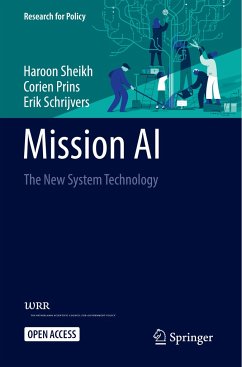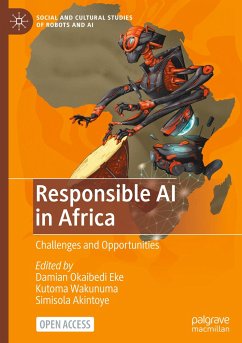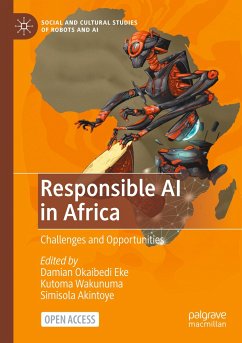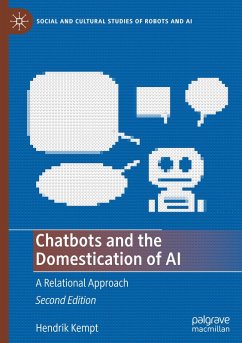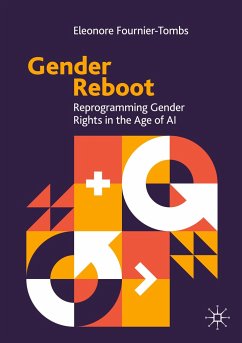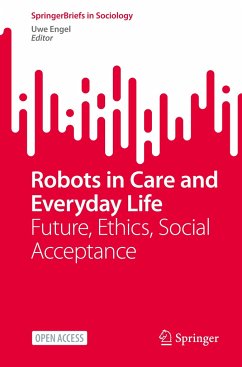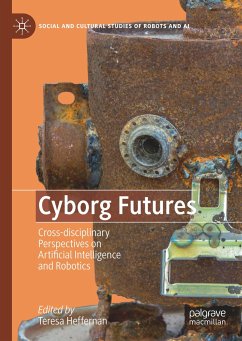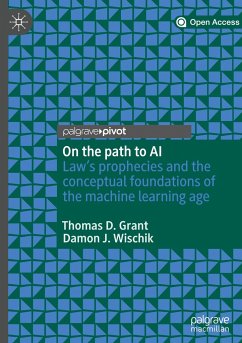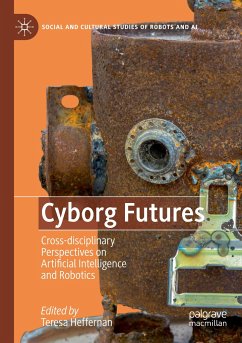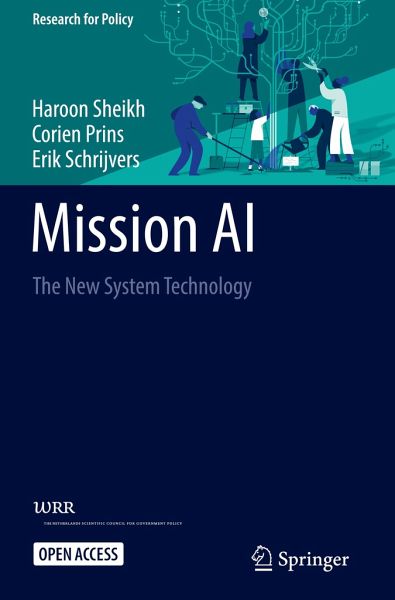
Mission AI
The New System Technology

PAYBACK Punkte
19 °P sammeln!
This open access book offers a strategic perspective on AI and the process of embedding it in society. After decades of research, Artificial Intelligence (AI) is now entering society at large. Due to its general purpose character, AI will change society in multiple, fundamental and unpredictable ways. Therefore, the Netherlands Scientific Council for Government Policy (WRR) characterizes AI as a system technology: a rare type of technologies that have a systemic impact on society. Earlier system technologies include electricity, the combustion engine and the computer. The history of these tech...
This open access book offers a strategic perspective on AI and the process of embedding it in society. After decades of research, Artificial Intelligence (AI) is now entering society at large. Due to its general purpose character, AI will change society in multiple, fundamental and unpredictable ways. Therefore, the Netherlands Scientific Council for Government Policy (WRR) characterizes AI as a system technology: a rare type of technologies that have a systemic impact on society. Earlier system technologies include electricity, the combustion engine and the computer. The history of these technologies provides us with useful insights about what it takes to direct the introduction of AI in society. The WRR identifies five key tasks to structurally work on this process: demystification, contextualisation, engagement, regulation and positioning. By clarifying what AI is (demystification), creating a functional ecosystem (contextualisation), involving diverse stakeholders (engagement), developing directive frameworks (regulation) and engaging internationally (positioning), societies can meaningfully influence how AI settles. Collectively, these activities steer the process of co-development between technology and society, and each representing a different path to safeguard public values. Mission AI - The New System Technology was originally published as an advisory report for the government of the Netherlands. The strategic analysis and the outlined recommendations are, however, relevant to every government and organization that aims to take up 'misson AI' and embed this newest system technology in our world.





